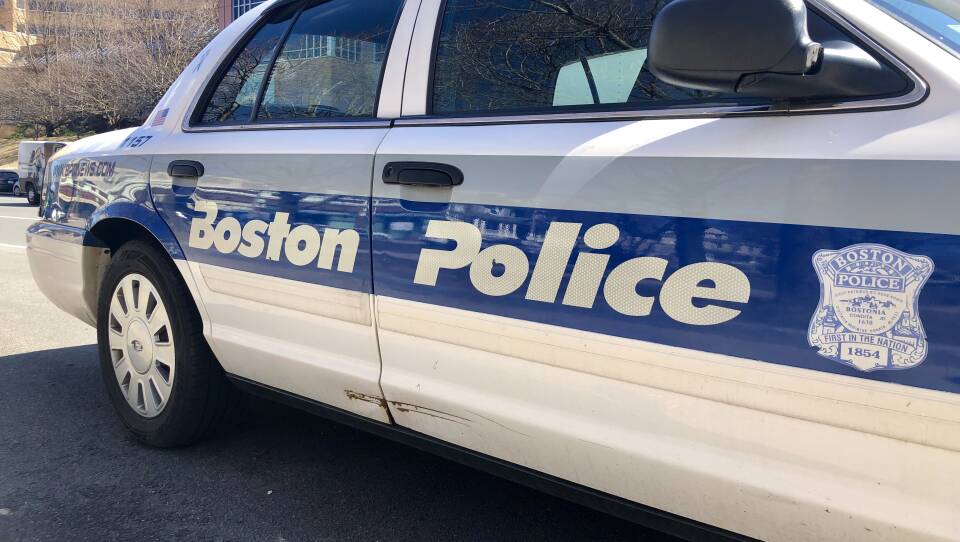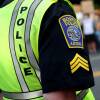A recent report from WGBH News found that the Boston Police Department pulled over a disproportionate percentage of Black people during traffic stops in 2019 . WGBH Morning Edition anchor Joe Mathieu spoke with Northeastern University law professor and WGBH News legal analyst Daniel Medwed about what the statistics mean and how they could inform how courts approach racial profiling cases. The transcript below has been edited for clarity.
Joe Mathieu: We learned in this case, in a story that people can read about at our website, Black people made up 70 percent of those stopped through the police department's field interrogation and observation program. This is between January and September of 2019, Daniel — a huge number.
Daniel Medwed: Absolutely, and I think an alarming number, too, in part because our African-American population in Boston represents less than a quarter of the city. Most notably, it suggests that police are targeting communities of color in making stops in the field, and it also suggests that things haven't improved much in recent years, despite BPD assertions to the contrary. The BPD has been releasing this data since 2016, but we also have access to earlier statistics. From 2007 to 2010, about 63 percent of the stops by the Boston Police Department involved Black people, suggesting that things haven't improved [and have] maybe even gotten slightly worse.
Mathieu: Let's talk about the outcome of some of these stops, at least the numbers that we have for 2019. After these stops, to what extent were Black people issued citations or actually arrested at a higher rate than white people?
Medwed: Well, the statistics tell a really interesting story on that front. In fact, it appears as though Black people were slightly less likely to receive a formal summons or a citation than white people. About 3 percent of Black people who were stopped received a summons, whereas 4 percent of whites did. So on the one hand, a positive take of that data is that the police are not actually penalizing African-Americans at a higher rate than white folks — they're letting them go. But on the other hand, a more realistic take shows a very troubling undercurrent in that data, that the police are stopping African-Americans, many of them for no reason, potentially as a form of harassment.
Mathieu: Suggesting some are intentionally targeting more Black people who end up being innocent as opposed to an officer having probable cause before stopping white people. Where's the Supreme Judicial Court on the issue of profiling, Daniel?
Medwed: Well, there've been several key opinions. The one that really comes to mind is from 2016, when the SJC tossed a gun conviction case in Commonwealth v. Warren. Here's what happened.
There was a breaking and entering in 2011 in Roxbury. The police responded to the report, which was of several African-American men. The police were canvasing or patrolling the neighborhood when the officers on a hunch approached Jimmy Warren, an African-American man, and somebody else. Warren turned and fled [and] the police gave pursuit. They stopped him, they searched him and they found a gun, which later provided the grounds for a conviction on illegal gun charges. [The] case then went up to the SJC, which overturned the conviction, finding that it was an unconstitutional search and seizure — specifically that the decision of an African-American man to flee from the police in the city of Boston was not consciousness of guilt. It wasn't a thumb on the scale to provide reasonable suspicion of guilt, but rather it might just be, in the words of Justice Geraldine Hines, a desire to avoid the recurring indignity of being racially profiled, and therefore explainable and quite innocuous.
More recently, just this past March, the SJC heard oral arguments in a very important case on what are called pretextual stops. The case is called Commonwealth v. Long. A pretextual stop is when the police cite a relatively insignificant offense, like having an expired inspection sticker on your car, as the basis to stop you and then launch a more full-scale search of you or your car. Many of us who are watching that case think that when the SJC issues an opinion, it might change how the Commonwealth approaches pretextual stops and might make it easier to throw out searches grounded in racial profiling.






